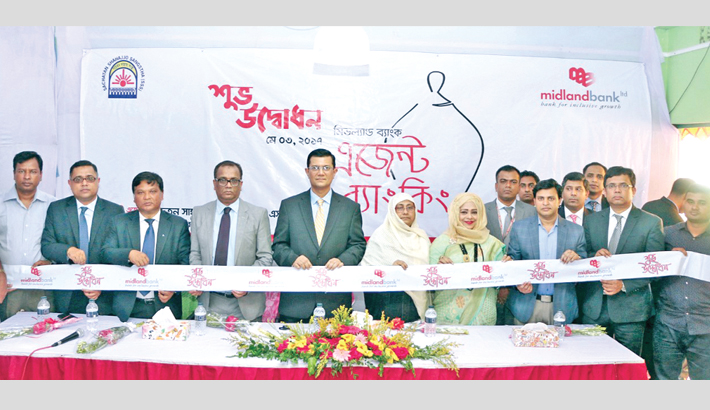The Asian Development Bank is upscaling its loan portfolio in Bangladesh to nearly double this year, to keep pace with its economy that is going great guns now.
"This year, we're negotiating with the government to provide loans ranging from $1.8-$2 billion, which is almost double the last year's amount. That is because Bangladesh is a different country from the past," said Hun Kim, director general of the South Asia Department at the ADB.
“Bangladesh's economy is growing fast and I would say, Bangladesh is really an emerging economy if you look at its forex reserves,” he said.
Kim was speaking to the media on Sunday at the concluding day of the Bank's four-day 50th annual meet at Pacifico Yokohama Conference Centre in Japan. Deputy Director General for ADB's South Asia Department Diwesh N Sharan was also present.
"Last year, the ADB's assistance to Bangladesh amounted to $1.1 billion and there is going to be a big jump this year with $1.8 billion." This would be a record in aid commitment to Bangladesh, the DG said.
The ADB would inject $650 million in a single project on power transmission and distribution in Bangladesh alongside continuing its assistance in the railways and road connectivity.
"As far as we're concerned, Bangladesh is doing right in terms of economic policy and implementation because we're focusing more on manufacturing and export orientation. So that's why we want to improve your logistics domestically and also want to remove energy constraints," Kim said.
Bangladesh should continue its 7 percent GDP growth, potentially scaling it up to 8 percent in the near future, he added.
Kim said there is still a lot of work left in the power and energy sector in Bangladesh alongside boosting road connectivity.
He, however, noted that Bangladesh is rather weak in mobilising foreign direct investment (FDI) as the flow is very small to this country; it accounts for less than 1 percent of its total GDP size.
"If you look at East Asia's experiences, it was FDI which drew growth, brought new management skills and technologies. I would say we should knock the private sector and mobilise more FDI that is also applied to Nepal and Sri Lanka," Kim said, adding that the flow of FDI is very low in South Asia, except India.
The ADB South Asia DG said that Bangladesh and Sri Lanka have been the biggest beneficiaries of capital increase over the years and annual lending to Bangladesh used to be around $1 billion a year.
"But I believe it can easily go up to $2 billion. So, this year, we're almost approaching that level. Based on the project readiness, we can make that commitment." Kim said they see three major initiatives in Bangladesh. One is transport logistics and the second is energy security. "The government is working on that."
The last major initiative is to develop the manufacturing growth centre. "If these three things are combined and aligned, I think Bangladesh can continue 7-8 percent growth. I think Bangladesh is close to the East and East Asia's success model at this stage."
Kim stressed the need for stronger policy support and said the manufacturing industry would definitely help accelerate economic growth.
On the labour force potential in Bangladesh, he said upgrading manpower skills could be the ultimate challenge before the country.
"Bangladesh has a high-quality labour force and this is one new area where we're working with the government. We're working on a number of projects like technical education and IT," he said.
"In upgrading skills and building infrastructure, we can work together and the government is committed in this regard. I can see this government can build infrastructure, but the ultimate challenge is to upgrade people's skills."
Bangladesh joined the ADB in 1973. As of 2016, ADB's cumulative lending to Bangladesh stood at $18.3 billion for 269 loans, $252.4 million for 422 technical assistance projects, and $787.10 million for 35 grants. As of March 31, 2017, the ADB's projects under implementation for Bangladesh comprised 90 loans and grants amounting to $7.6 billion and 32 technical assistance projects amounting to $28.58 million.
In 2016, the ADB approved 10 projects for Bangladesh, with loans totalling $1.1 billion and technical assistance of $7.85 million
news:daily star/9-may-2017



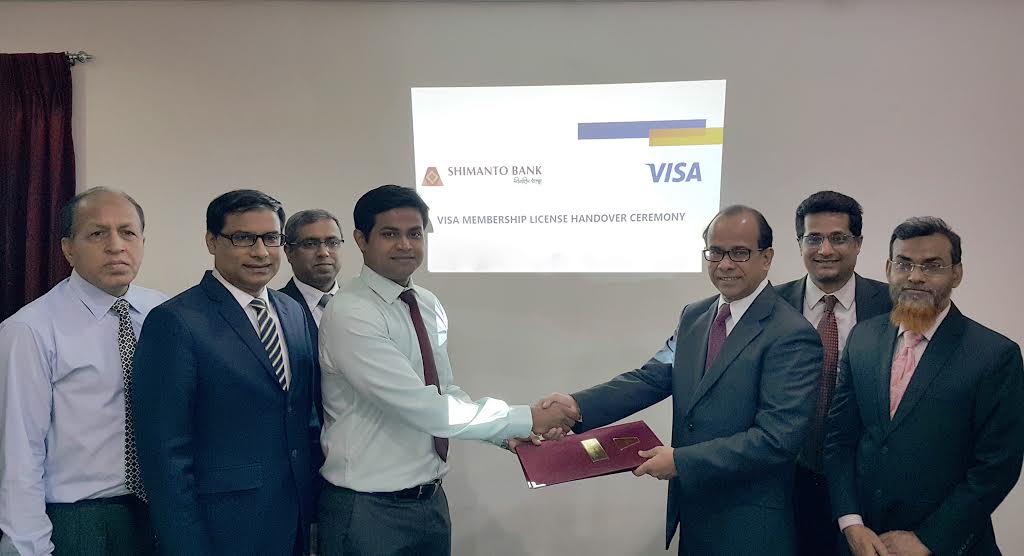 Shimanto Bank, Bangladesh’s new age scheduled commercial bank, has received an issuing and acquiring license from Visa, the leading global payments network, which will allow it to issue Visa-branded payment products and acquire merchant transactions. The contract signing event of the partnership, held at Shimanto Bank premises, was attended by high officials of Shimanto Bank including Muklesur Rahman, MD & CEO; Rafiqul Islam, SEVP and COO; Anwar Faruq Talukder, EVP and Head of Retail & SME; Alim Hossain Khan, EVP and Head of GSSD; Mohammad Azizul Haque, SVP, Operation Division; and Md. Mizanur Rahman, VP and Acting Head of Card & ADC. Soumya Basu, Business Development Manager, Visa, represented Visa at the event, said a statement.
Shimanto Bank, Bangladesh’s new age scheduled commercial bank, has received an issuing and acquiring license from Visa, the leading global payments network, which will allow it to issue Visa-branded payment products and acquire merchant transactions. The contract signing event of the partnership, held at Shimanto Bank premises, was attended by high officials of Shimanto Bank including Muklesur Rahman, MD & CEO; Rafiqul Islam, SEVP and COO; Anwar Faruq Talukder, EVP and Head of Retail & SME; Alim Hossain Khan, EVP and Head of GSSD; Mohammad Azizul Haque, SVP, Operation Division; and Md. Mizanur Rahman, VP and Acting Head of Card & ADC. Soumya Basu, Business Development Manager, Visa, represented Visa at the event, said a statement.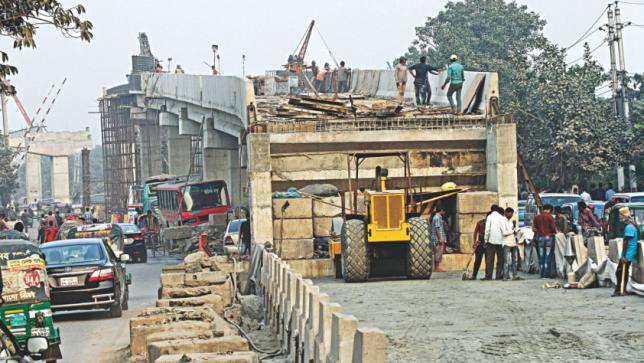
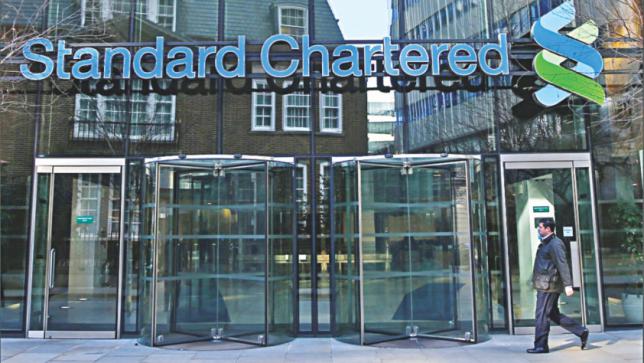
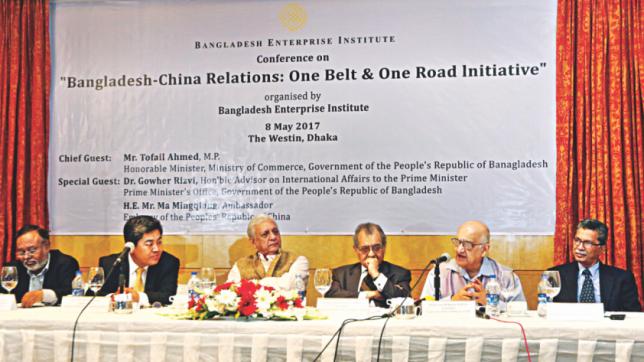 Gowher Rizvi, international affairs adviser to the prime minister; Rehman Sobhan, chairman of the Centre for Policy Dialogue; Farooq Sobhan, president of Bangladesh Enterprise Institute (BEI), and Ma Mingqiang, Chinese ambassador to Bangladesh, attend a conference on Bangladesh-China relations, at the Westin Dhaka hotel yesterday. BEI organised the event
Gowher Rizvi, international affairs adviser to the prime minister; Rehman Sobhan, chairman of the Centre for Policy Dialogue; Farooq Sobhan, president of Bangladesh Enterprise Institute (BEI), and Ma Mingqiang, Chinese ambassador to Bangladesh, attend a conference on Bangladesh-China relations, at the Westin Dhaka hotel yesterday. BEI organised the event